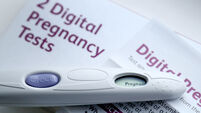WHO finds 17.5% of adults experience infertility creating 'poverty trap' for many

Around one in six adults around the world experience infertility and the costs associated with this create a “medical poverty trap” for many, the World Health Organization has warned.
It has now estimated around 17.5% of adults experience the devastating condition. It said this shows the need to increase access to “affordable, high-quality fertility care” globally.













